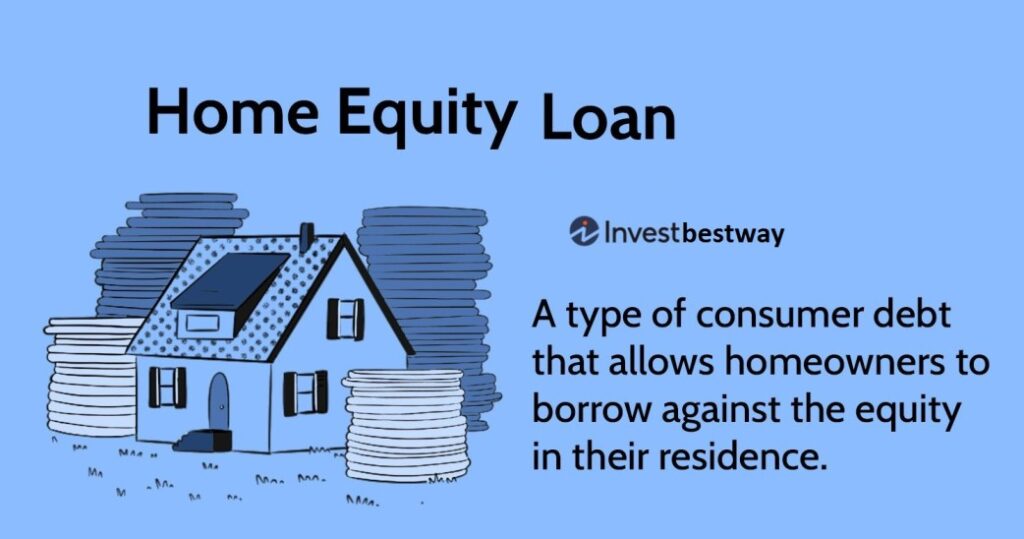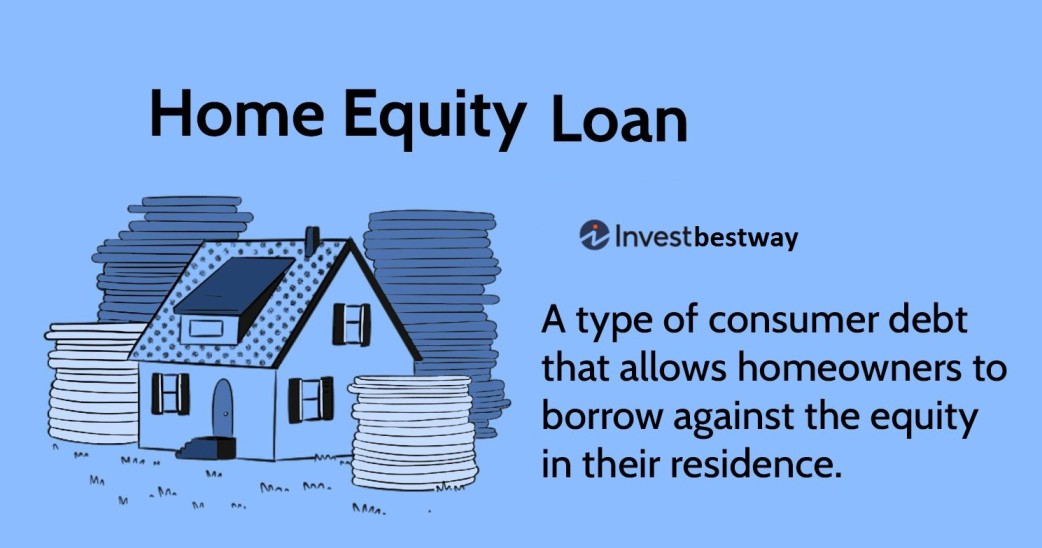Equity is the amount that your home is worth, on the market, the amount that is payable to your mortgage broker. For example, if you have a net worth of $400,000 and your broker owes you $200,000, your home equity loan is $200,000 of your property that you have free and clear.
In a home equity loan, your home itself is a guarantor that uses the equity in your home as collateral. Before borrowing against home equity, you need to understand that the loan reduces your equity by the loan amount and you may even lose your home if you are not able to repay the loan.

Loan’s plus and minuses Points
Just like all other loans have advantages and disadvantages, you should also consider the pros and cons of a home equity loan before applying for it.
Plus points of loan
The interest paid on a home loan protects you from tax deductions from your income, just like the interest on your mortgage. Such loan cases do not apply to credit card interest. Home loan interest rates can be lower indirectly as if you are borrowing from a credit card, you can give your property as a guarantee that you will repay the loan.,
This loan gives you a great source of funds for major purchases like taking loan for college education, need money for home repairs or need money in case of medical emergency or any other situation.
How to get a secured personal loan
minus point of loan
You will have to pay the home loan dues in full or else you can lost your house. Often on the termination of the loan you have to pay the closing cost of the loan which is an addition which is not recoverable but reduces the value of the loan to you If you have excess equity lying in your home, you will become the target of dishonest selling tactics which will make you need more loans now than ever before.
If in such a situation you feel that you are being put under extra pressure to borrow, then at that time you can say no and always take time while taking equity loan. There are many options available to make a home loan good or bad, you should consider them wisely and take a decision.
Good reasons to take a home equity loan
Improving your finances –
It improves your financial status. Consolidate those that are not tax deductible by paying off high-interest credit cards or other high-interest debt.
Investing in your home –
You can increase the value of your home by investing in your home. You can use this loan for your home improvement or renovation.
Investing in your future –
Through this you can invest in your future like funding education or starting a business.

Bad reasons to take a home equity loan
Spending money on luxury items –
New car for luxury, expensive travel, incurring other expenses, putting your house at risk. You should save until you can afford these luxuries.
Using money for living expenses –
If you are spending more than you earn then money will only delay the ‘inevitable’ You will have to cut your expenses in the ways of saving For this you can go to a credit counselor can take help of.
Lend money to a friend or relative –
Don’t lend a home loan to anyone because if they don’t pay back they won’t lose anything but you can lose your house.
7 easy ideas to Choose the Right Credit Card
Overcome your current bad financial situation
If you are thinking of taking a Home Equity Loan to overcome your current bad financial situation, then do not do so. There are high chances that you will go into the same debt again and the present situation will worsen in which you may even lose your house.
For this, you can take the help of a counselor who can help you to suggest better solutions at little or no cost.
FAQ’s
Conclusion of Home Equity Loans – it’s Types, Work and Benefits
In conclusion, the decision to take out a home equity loan is a nuanced one that demands careful consideration of individual financial circumstances, goals, and risk tolerance. While a home equity loan can be a powerful financial tool, it is not a one-size-fits-all solution. This form of borrowing is particularly beneficial for those with specific needs, such as funding home improvements, consolidating high-interest debt, or covering significant expenses like education.
Creditworthiness plays a pivotal role in securing favourable terms for a home equity loan. While a strong credit history can open doors to lower interest rates and better terms, individuals with less-than-perfect credit should be aware that they might face higher interest rates. It is essential to approach the decision with a clear understanding of one’s financial standing and the impact the loan may have on long-term stability.
Furthermore, the potential tax implications of a home equity loan must not be overlooked. Tax deductibility depends on the loan’s purpose and can influence the overall cost of borrowing. As tax laws evolve, staying informed about the current regulations and seeking advice from financial professionals is crucial.
Ultimately, a home equity loan can be a valuable financial instrument when used judiciously. Responsible borrowing, meticulous planning, and a comprehensive understanding of the terms and conditions can ensure that individuals harness the benefits of a home equity loan without jeopardizing their financial well-being. As with any financial decision, seeking guidance from financial advisors and thoroughly researching options will empower individuals to make informed choices aligned with their unique circumstances and aspirations.
Through this article on a Home Equity Loan, we have told you all its pros and cons and plus and minus all the facts so that you can understand it easily. Apart from this, if you have any query, then you can share it by commenting in the comment box, we will wait for your suggestions and comments, thank you for reading completely.





4 thoughts on “Home Equity Loans – it’s Types, Work and Benefits”